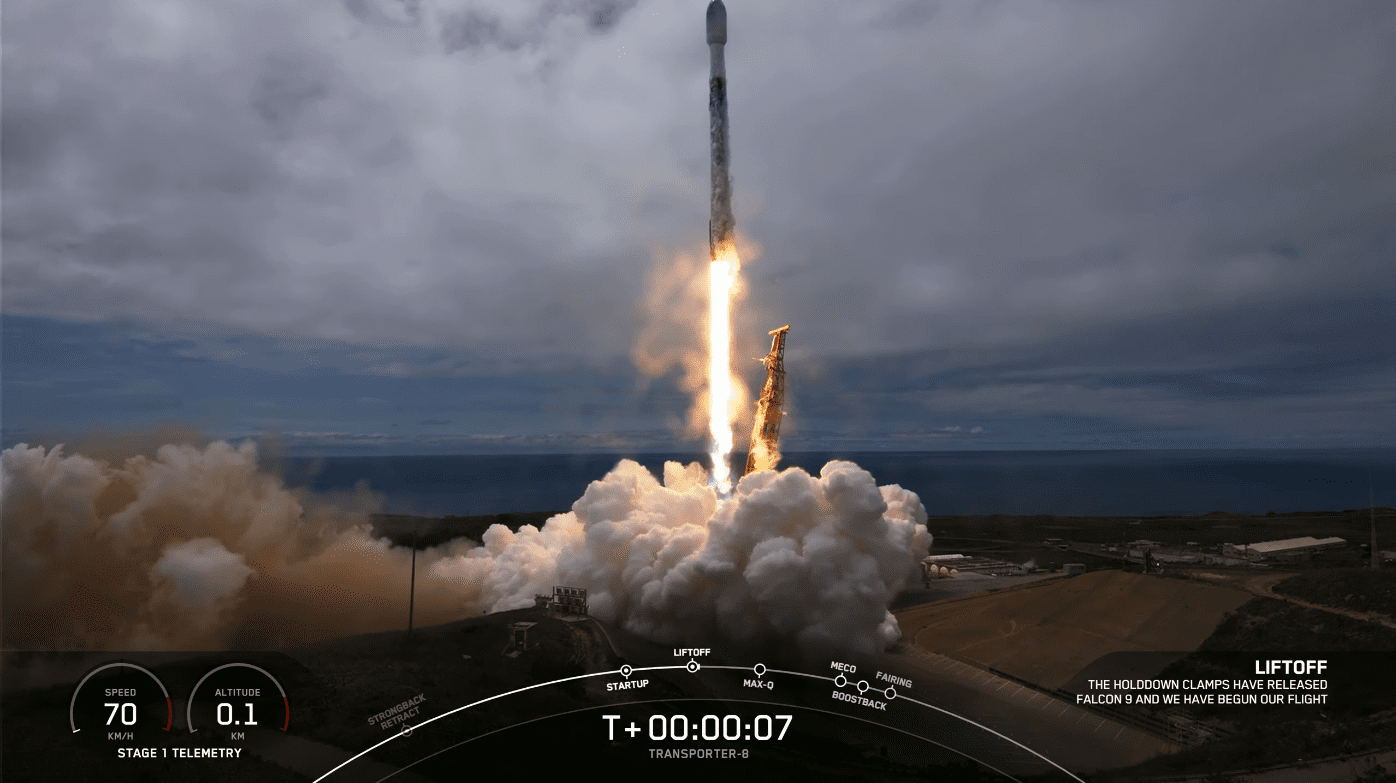The MRC-100 satellite was launched on SpaceX’s Falcon 9 rocket as part of the Transporter 8 mission from Vandenberg Space Force Base in California, USA, on 12 June, according to a statement by the Budapest University of Technology (BME).
Eighty minutes after the rocket’s ascent, the ION SCV-011 spacecraft, which carried the BME satellite and was part of the payload, successfully separated. The Italian D-Orbit company’s satellite platform is committed to placing the fifth BME-developed nanosatellite into orbit in about seven days.
After the MRC-100 is in orbit, it will still need to wait for the battery to recharge, as it has been depleted since its delivery in December and installation into the larger satellite. Once sufficient energy is collected through its solar panels to ensure satellite power, its systems will be activated, and when the battery reaches an appropriate charge level, it will begin radio transmission, estimated within 7–14 days.
According to the announcement, the ground has been prepared for receiving and controlling the MRC-100 satellite which was named in honour of the 100th anniversary of the existence of the BME Radio Club. Additionally, numerous amateur radio stations around the world are eagerly awaiting the satellite’s signals and will relay them to the developers. The team will provide updates and news related to the MRC-100 nanosatellite on the spacecraft’s website.
Transporter-8 is SpaceX’s eighth mission is dedicated to deploying small satellites into orbit. A total of 72 spacecraft were placed into orbit, including CubeSats, microsatellites, a re-entry capsule unit, and satellite platforms for deploying smaller spacecraft.
The development team at BME currently holds the record for the most successful PocketQube category satellite missions worldwide.
BME has been involved in space research and space technology-related activities for decades, and the launch of MRC-100 into space represents another significant milestone in their endeavours.
In collaboration with the Faculty of Electrical Engineering, as well as the Faculties of Civil Engineering, Mechanical Engineering, Transportation Engineering and Vehicle Engineering, Natural Sciences, BME launched a unique space engineering master’s programme in Hungary in 2022, as highlighted by the university.








